Great Astronomers by Robert Stawell Ball (uplifting novels .txt) 📕
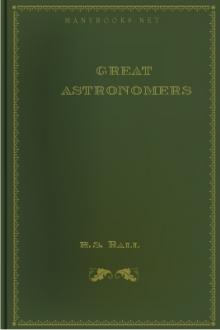
- Author: Robert Stawell Ball
- Performer: -
Book online «Great Astronomers by Robert Stawell Ball (uplifting novels .txt) 📕». Author Robert Stawell Ball
to the north or to the south of the average lunar disc.
But the circumstances which make the career of Galileo so
especially interesting from the biographer’s point of view, are
hardly so much the triumphs that he won as the sufferings that he
endured. The sufferings and the triumphs were, however, closely
connected, and it is fitting that we should give due consideration
to what was perhaps the greatest drama in the history of science.
On the appearance of the immortal work of Copernicus, in which it
was taught that the earth rotated on its axis, and that the earth,
like the other planets, revolved round the sun, orthodoxy stood
aghast. The Holy Roman Church submitted this treatise, which bore
the name “De Revolutionibus Orbium Coelestium,” to the
Congregation of the Index. After due examination it was condemned
as heretical in 1615. Galileo was suspected, on no doubt
excellent grounds, of entertaining the objectionable views of
Copernicus. He was accordingly privately summoned before Cardinal
Bellarmine on 26th February 1616,
and duly admonished that he was on no account to teach or to
defend the obnoxious doctrines. Galileo was much distressed by
this intimation. He felt it a serious matter to be deprived of
the privilege of discoursing with his friends about the Copernican
system, and of instructing his disciples in the principles of the
great theory of whose truth he was perfectly convinced. It pained
him, however, still more to think, devout Catholic as he was, that
such suspicions of his fervent allegiance to his Church should
ever have existed, as were implied by the words and monitions of
Cardinal Bellarmine.
In 1616, Galileo had an interview with Pope Paul V., who received
the great astronomer very graciously, and walked up and down with
him in conversation for three-quarters of an hour. Galileo
complained to his Holiness of the attempts made by his enemies to
embarrass him with the authorities of the Church, but the Pope
bade him be comforted. His Holiness had himself no doubts of
Galileo’s orthodoxy, and he assured him that the Congregation of
the Index should give Galileo no further trouble so long as Paul
V. was in the chair of St. Peter.
On the death of Paul V. in 1623, Maffeo Barberini was elected
Pope, as Urban VIII. This new Pope, while a cardinal, had been an
intimate friend of Galileo’s, and had indeed written Latin verses
in praise of the great astronomer and his discoveries. It was
therefore not unnatural for Galileo to think that the time had
arrived when, with the use of due circumspection, he might
continue his studies and his writings, without fear of incurring
the displeasure of the Church. Indeed, in 1624, one of Galileo’s
friends writing from Rome, urges Galileo to visit the city again,
and added that—
“Under the auspices of this most excellent, learned, and benignant
Pontiff, science must flourish. Your arrival will be welcome to
his Holiness. He asked me if you were coming, and when, and in
short, he seems to love and esteem you more than ever.”
The visit was duly paid, and when Galileo returned to Florence,
the Pope wrote a letter from which the following is an extract,
commanding the philosopher to the good offices of the young
Ferdinand, who had shortly before succeeded his father in the
Grand Duchy of Tuscany.
“We find in Galileo not only literary distinction, but also the
love of piety, and he is also strong in those qualities by which
the pontifical good-will is easily obtained. And now, when he has
been brought to this city to congratulate us on our elevation, we
have very lovingly embraced him; nor can we suffer him to return
to the country whither your liberality calls him, without an ample
provision of pontifical love. And that you may know how dear he
is to us, we have willed to give him this honourable testimonial
of virtue and piety. And we further signify that every benefit
which you shall confer upon him, imitating or even surpassing your
father’s liberality, will conduce to our gratification.”
The favourable reception which had been accorded to him by
Pope Urban VIII. seems to have led Galileo to expect that there
might be some corresponding change in the attitude of the Papal
authorities on the great question of the stability of the earth.
He accordingly proceeded with the preparation of the chief work
of his life, “The Dialogue of the two Systems.” It was submitted
for inspection by the constituted authorities. The Pope himself
thought that, if a few conditions which he laid down were duly
complied with, there could be no objection to the publication of
the work. In the first place, the title of the book was to be so
carefully worded as to show plainly that the Copernican doctrine
was merely to be regarded as an hypothesis, and not as a
scientific fact. Galileo was also instructed to conclude the book
with special arguments which had been supplied by the Pope
himself, and which appeared to his Holiness to be quite conclusive
against the new doctrine of Copernicus.
Formal leave for the publication of the Dialogue was then given
to Galileo by the Inquisitor General, and it was accordingly sent
to the press. It might be thought that the anxieties of the
astronomer about his book would then have terminated. As a matter
of fact, they had not yet seriously begun. Riccardi, the
Master of the Sacred Palace, having suddenly had some further
misgivings, sent to Galileo for the manuscript while the work was
at the printer’s, in order that the doctrine it implied might be
once again examined. Apparently, Riccardi had come to the
conclusion that he had not given the matter sufficient attention,
when the authority to go to press had been first and, perhaps,
hastily given. Considerable delay in the issue of the book was
the result of these further deliberations. At last, however, in
June, 1632, Galileo’s great work, “The Dialogue of the two
Systems,” was produced for the instruction of the world, though
the occasion was fraught with ruin to the immortal author.
[PLATE: FACSIMILE SKETCH OF LUNAR SURFACE BY GALILEO.]
The book, on its publication, was received and read with the
greatest avidity. But presently the Master of The Sacred Palace
found reason to regret that he had given his consent to its
appearance. He accordingly issued a peremptory order to
sequestrate every copy in Italy. This sudden change in the Papal
attitude towards Galileo formed the subject of a strong
remonstrance addressed to the Roman authorities by the Grand Duke
of Tuscany. The Pope himself seemed to have become impressed all
at once with the belief that the work contained matter of an
heretical description. The general interpretation put upon the
book seems to have shown the authorities that they had mistaken
its true tendency, notwithstanding the fact that it had been
examined again and again by theologians deputed for the duty. To
the communication from the Grand Duke the Pope returned answer,
that he had decided to submit the book to a congregation of
“learned, grave, and saintly men,” who would weigh every word in
it. The views of his Holiness personally on the subject were
expressed in his belief that the Dialogue contained the most
perverse matter that could come into a reader’s hands.
The Master of the Sacred Palace was greatly blamed by the
authorities for having given his sanction to its issue. He
pleaded that the book had not been printed in the precise terms of
the original manuscript which had been submitted to him. It was
also alleged that Galileo had not adhered to his promise of
inserting properly the arguments which the Pope himself had given
in support of the old and orthodox view. One of these had, no
doubt, been introduced, but, so far from mending Galileo’s case,
it had made matters really look worse for the poor philosopher.
The Pope’s argument had been put into the mouth of one of the
characters in the Dialogue named “Simplicio.” Galileo’s enemies
maintained that by adopting such a method for the expression of
his Holiness’s opinion, Galileo had intended to hold the Pope
himself up to ridicule. Galileo’s friends maintained that nothing
could have been farther from his intention. It seems, however,
highly probable that the suspicions thus aroused had something to
say to the sudden change of front on the part of the Papal
authorities.
On 1st October, 1632, Galileo received an order to appear before
the Inquisition at Rome on the grave charge of heresy. Galileo,
of course, expressed his submission, but pleaded for a respite
from compliance with the summons, on the ground of his advanced
age and his failing health. The Pope was, however, inexorable; he
said that he had warned Galileo of his danger while he was still
his friend. The command could not be disobeyed. Galileo might
perform the journey as slowly as he pleased, but it was
imperatively necessary for him to set forth and at once.
On 20th January, 1633, Galileo started on his weary journey to
Rome, in compliance with this peremptory summons. On 13th
February he was received as the guest of Niccolini, the Tuscan
ambassador, who had acted as his wise and ever-kind friend
throughout the whole affair. It seemed plain that the Holy Office
were inclined to treat Galileo with as much clemency and
consideration as was consistent with the determination that the
case against him should be proceeded with to the end. The Pope
intimated that in consequence of his respect for the
Grand Duke of Tuscany he should permit Galileo to enjoy the
privilege, quite unprecedented for a prisoner charged with heresy,
of remaining as an inmate in the ambassador’s house. He ought,
strictly, to have been placed in the dungeons of the Inquisition.
When the examination of the accused had actually commenced,
Galileo was confined, not, indeed, in the dungeons, but in
comfortable rooms at the Holy Office.
By the judicious and conciliatory language of submission which
Niccolini had urged Galileo to use before the Inquisitors, they
were so far satisfied that they interceded with the Pope for his
release. During the remainder of the trial Galileo was
accordingly permitted to go back to the ambassador’s, where he was
most heartily welcomed. Sister Maria Celeste, evidently thinking
this meant that the whole case was at an end, thus expresses
herself:—
“The joy that your last dear letter brought me, and the having to
read it over and over to the nuns, who made quite a jubilee on
hearing its contents, put me into such an excited state that at
last I got a severe attack of headache.”
In his defence Galileo urged that he had already been acquitted
in 1616 by Cardinal Bellarmine, when a charge of heresy was
brought against him, and he contended that anything he might now
have done, was no more than he had done on the preceding occasion,
when the orthodoxy of his doctrines received solemn confirmation.
The Inquisition seemed certainly inclined to clemency, but the
Pope was not satisfied. Galileo was accordingly summoned again on
the 21st June. He was to be threatened with torture if he did not
forthwith give satisfactory explanations as to the reasons which
led him to write the Dialogue. In this proceeding the Pope
assured the Tuscan ambassador that he was treating Galileo with
the utmost consideration possible in consequence of his esteem and
regard for the Grand Duke, whose servant Galileo was. It was,
however, necessary that some exemplary punishment be meted out
to the astronomer, inasmuch as by the publication of the Dialogue
he had distinctly disobeyed the injunction of silence laid upon
him by the decree of 1616. Nor was it
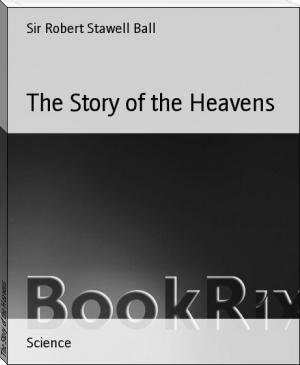
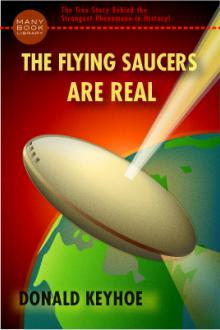

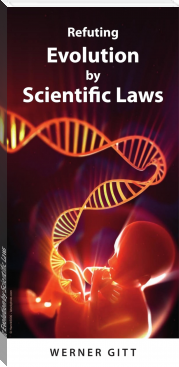
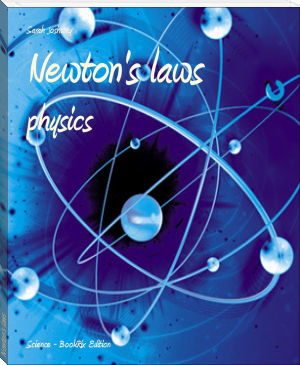
Comments (0)